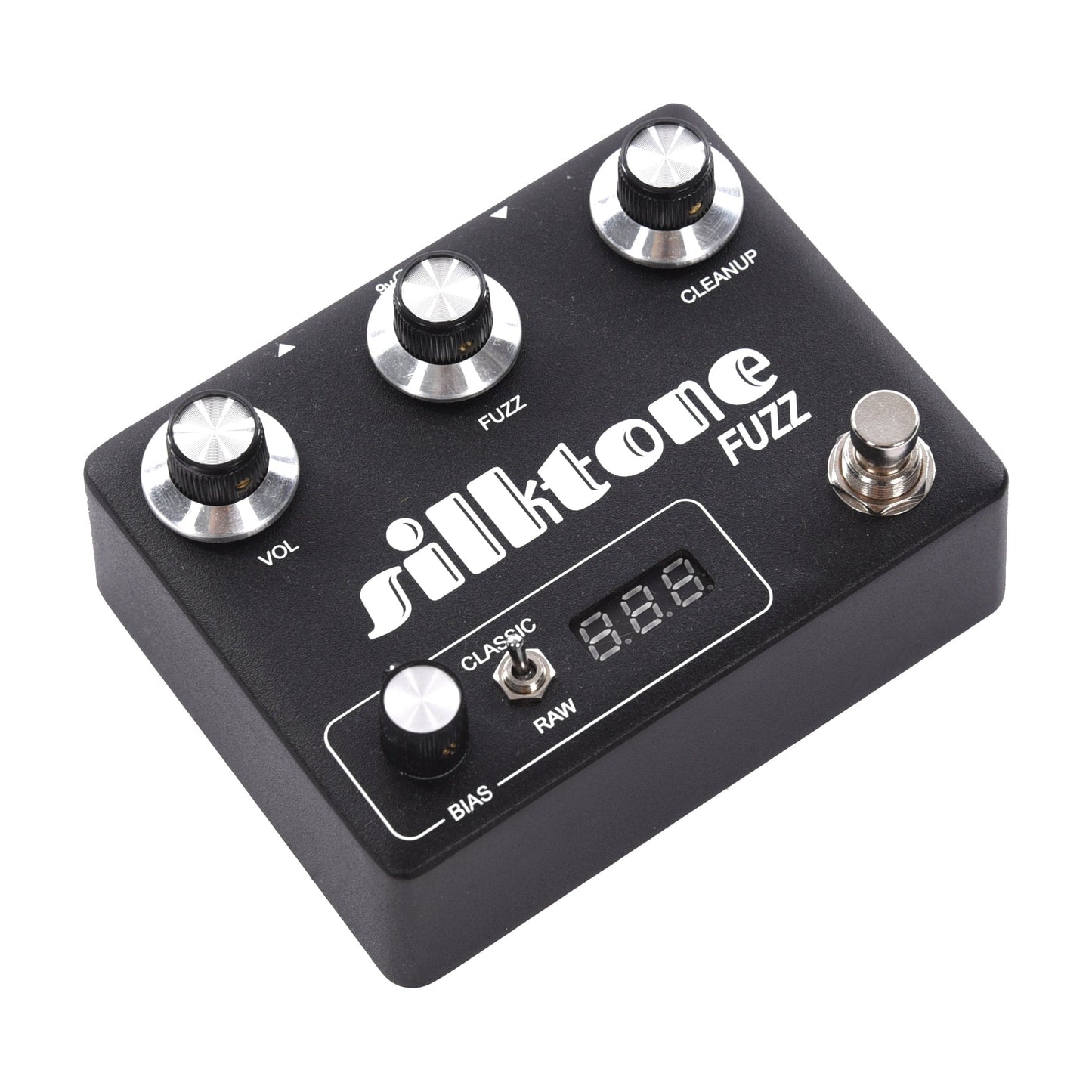This item is currently out of stock, but don't fret! We have a lot of effect pedals in stock. Shop Now


Description
Description
The Silktone Fuzz followed a design concept we've been using here a lot: Simplified versatility. At it’s heart are two germanium transistors in the classic FF/TB1.5 topology, tweaked to get a huge array of tones. We wanted to nail the awesome tones you get when these transistors are biased to their sweet spot… and also when they’re not. No tone left behind. We started out testing and tweaking bias points all day just to come back to a cold shop the next morning with the transistors all out of whack from the temperature shift. Out came the big digital multi-meter to adjust things back where they belonged and a thought struck me - what if I could get this into a pedal? This would make dialing in your favorite fuzz tone easier than ever without being plagued by the inconsistent bias shifting these temperature sensitive germanium pedals are known for. This led to the creation of our Active Bias Monitor (patent pending) - you want fat sticky fuzz? Dial it past 8.00. Prefer that oh, so sweet sweet sweet spot? Dial it to ~4.50. Want spitty gated fuzz? Cool, me too - dial it to ~1.10. Combine this with it's onboard pickup simulator to place this fuzz anywhere in your chain without the normal issues (thanks Orman) and a cleanup knob to get you into crunch/clean boost territory with beautifully musical germanium color and you have one of the most useable, versatile fuzzes to date.
CONTROLS:
Volume: changes output volume - the more you cut it the more highs roll off to soften the tone.
Fuzz: changes transistor gain, we usually leave it dimed but it will offer some different clean boost/drive tones than the cleanup knob when rolled back... Just leave it dimed.
Cleanup: Keep this rolled all the way down for normal fuzz operation - as you turn it up the input level goes down cleaning up the tone for overdrives or clean boosty stuff with germanium flavor - same as guitar volume control but still useful for presetting or if pedal is placed late in the chain.
Classic/Raw: this switch changes the bias ratio and bass filtering from more traditional FF settings to a boosted setting with no bass filter. Fatter tones available in Raw mode through the range.
Bias: changes the bias point of the two germanium transistors - this is shown on the Active Bias Monitor
A few bias points:
Gated: ~1.10
Vintage: ~2.50
“Sweet spot”: ~4.50
Fat fuzz: ~6.50
Sticky fuzz: ~8:00
Note about Power: This fuzz uses a positive ground so no daisy-chaining, if using a power supply brick make sure they are 'isolated' 9VDC center negative (voodoo labs, strymon, mxr iso, 1spot pro, etc are fine)
CONTROLS:
Volume: changes output volume - the more you cut it the more highs roll off to soften the tone.
Fuzz: changes transistor gain, we usually leave it dimed but it will offer some different clean boost/drive tones than the cleanup knob when rolled back... Just leave it dimed.
Cleanup: Keep this rolled all the way down for normal fuzz operation - as you turn it up the input level goes down cleaning up the tone for overdrives or clean boosty stuff with germanium flavor - same as guitar volume control but still useful for presetting or if pedal is placed late in the chain.
Classic/Raw: this switch changes the bias ratio and bass filtering from more traditional FF settings to a boosted setting with no bass filter. Fatter tones available in Raw mode through the range.
Bias: changes the bias point of the two germanium transistors - this is shown on the Active Bias Monitor
A few bias points:
Gated: ~1.10
Vintage: ~2.50
“Sweet spot”: ~4.50
Fat fuzz: ~6.50
Sticky fuzz: ~8:00
Note about Power: This fuzz uses a positive ground so no daisy-chaining, if using a power supply brick make sure they are 'isolated' 9VDC center negative (voodoo labs, strymon, mxr iso, 1spot pro, etc are fine)


